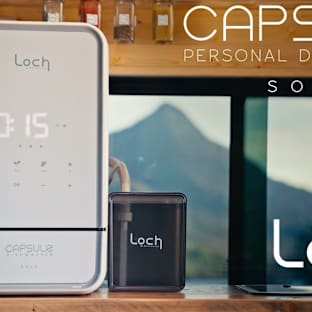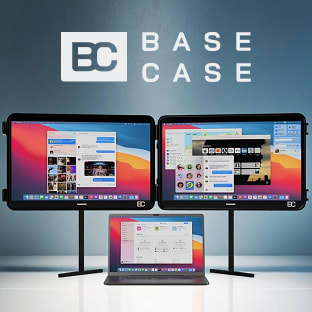Tell me and I forget.
Show me and I remember.
Let me do and I understand.
- Confucius
Short Summary
There are over 10,000 entrepreneurship classrooms in the US, reaching over half a million students, but did you know that the vast majority of educators are teaching entrepreneurship from a textbook, rather than letting students experience it for themselves?
Teaching entrepreneurship should be a lot less like teaching accounting (theory based) and a lot more like teaching basketball (hands on practice).
My name is Diana Kander. I am an entrepre.nerd and a Senior Fellow at the Kauffman Foundation. I've written a novel about the trials and tribulations of starting a business and created an accompanying curriculum to get students out of the classroom to experience launching a new venture for themselves.
The book, All In Startup, takes place at the World Series of Poker and has more sexual tension than any business book you've ever read (meaning students will actually read it). AND STUDENTS LOVE IT. But don't take my word for it...see for yourself:
And the curriculum is all about getting students out of the classroom to experience what entrepreneurship is like, even if they don't have an idea they want to pursue.
Here are some sample student reactions to the curriculum:
Kara:
"For an activity as simple as handing dollar bills to random strangers, the challenge opened my eyes to the value of connecting with others. Even with all of the preparation I made beforehand, approaching people and convincing them to accept my gift was plain awkward. Just this one challenge has taught me that the hardest part of succeeding in business can be communicating with the potential targets of your product or service—the customers. By handing out free money, I wasn’t trying to sell anything, rather just aiming to complete my mission. I had to deal with people who were skeptical of my giving, some who kindly turned down the money, and others who flat-out ignored me. But if I were an entrepreneur trying to attract customers, I would have to deal with similar interactions. Never before did I think of connecting with customers as being the most integral part to building a business. Frankly, my perspective has been flipped around and I’m thrilled to experience more through the challenges to come."
Sarah:
“Simulating the beginning stages of a startup through the exercise taught me more about entrepreneurship than any of my lecture-based classes. I was able to actually practice selling and business techniques, which gave me a tangible understanding of what works and what doesn’t in the startup world. The exercise was actually fun, and I learned so much. I am looking forward to (and slightly scared again) for the next challenge!"
I'm trying to get the book and curriculum into the hands of each of those 10,000 professors in the hopes that they will use it to introduce experiential education - getting customers, finding problems worth solving, testing assumptions, etc - into their classroom.
Please help get these materials into as many classrooms as possible and help train the next generation of entrepreneurs with proven methodologies to improve their odds of success.
Entrepreneurs like Tony Hsieh of Zappos and Steve Blank think this novel is an excellent representation of the entrepreneurial experience:
![]()
![]()
![]()
Educators see a lot of value to applying the book and curriculum in the classroom:
“There is seldom a read that when you start it, you can't put it down. Diana Kander has crafted such an experience that fuses an engaging story of choices, dilemmas, tradeoffs, and problems with the real-world experience of the entrepreneur. In a narrative that captures the culture and the spirit of an entrepreneur in a worthy tale of swagger, hustle and intuition, the reader will learn the lessons of the "all in" entrepreneur and build a framework to approach their own entrepreneurial pathway. Before you know it, the lessons framed in the book become your own, to the extent that you will convince yourself you have always known them. I've concluded that anyone who thinks they may want to take a crack at founding a business, should read "All In" first.”
![]() -Ted Zoller, Director, Center for Entrepreneurial Studies, University of North Carolina – Chapel Hill
-Ted Zoller, Director, Center for Entrepreneurial Studies, University of North Carolina – Chapel Hill
_______________________________________________________________
“This book should be required reading for anybody interested in entrepreneurship, from high school students to experienced entrepreneurs because, in contrast to the multitude of traditional, cookie-cutter textbooks on entrepreneurship, it conveys important concepts, and stages in the entrepreneurial process in an easy and entertaining way.
We're using All In Startup as part of our curriculum at the University of Missouri - Kansas City because this book offers a different way of explaining the elements of a business model, how they work together in a coherent way and how to test the assumptions entrepreneurs make about all aspects of their business.”
![]() - Dirk Libaers - Professor of Entrepreneurship – University of Missouri - Kansas City
- Dirk Libaers - Professor of Entrepreneurship – University of Missouri - Kansas City
What We Need
If you're an entrepreneur, buy a copy of All In Startup for yourself and your team.
And, if you are feeling generous, please sponsor a school you care about to receive copies of the book and curriculum.
If you wish your college taught more about talking to customers and less about writing business plans, support your alma mater by buying copies for a single class.
If you're an entrepreneurship educator, buy a copy for your classroom and I'll work with you to help you implement All In Startup into your existing curriculum.
100% of the funds raised will either be used to send you perks or to send books and materials to as many educators as we can afford to contact.
Our goal is to get over 1,000 entrepreneurs to sponsor the campaign so that the professors we contact understand that this is a real grassroots effort demonstrating the importance and value of experiential rather than theory based education.
If you have a suggestion for additional perks that would entice you to give, we’re excited to hear your suggestions.
More About the Book and Curriculum:
![]()
All In Startup: Coming June 30, 2014 from Wiley.
If Owen Chase doesn’t come up with a way to turn his company around in the next nine days, he will be forced to shut it down and lay off all of his employees. He has incurred serious debt and his marriage is on shaky ground. Through pure happenstance, Owen finds himself pondering this problem while advancing steadily as a contestant at the World Series of Poker. His Las Vegas path quickly introduces him to Samantha, a beautiful mentor with a revolutionary approach to entrepreneurship. Sam is a fountain of knowledge that may save his company, but her sexual advances might prove too much for Owen’s struggling marriage.
All In Startup is more than just a novel about eschewing temptation and saving a company. It wraps innovative business principles in a thrilling story about high-stakes poker and reveals the emotional reality of entrepreneurship that goes tragically unmentioned during business school.
All In Startup will introduce you to the latest advances in entrepreneurship, including a new understanding of how to launch a company in a way that dramatically improves its chances of success. The “business plan” curriculum taught in most M.B.A. programs is on the verge of extinction. A new “scientific method” of entrepreneurship built around forming and testing basic assumptions will soon become the standard.
Join Owen on his journey as he discovers and begins to practice a new type of entrepreneurship.
If you want to download a sample of the book, you can do so for free here: https://gum.co/NoHFx The sample includes the foreword by Steve Blank, Introduction, Chapter List, and First Chapter.
___________________________________________________
The curriculum I've designed is pretty simple. It gets students out of the classroom to help Owen with his experiments. They can interview customers in their community to find out if the problem Owen has diagnosed actually exists and whether it's serious enough to warrant a business. They can also try to sell real customers on Owen's proposed solution or one of hundreds of other solutions.
But this is just one application. I would welcome help from professors on developing other curriculum applications of All In Startup.
About Diana
![]()
A refugee of the Soviet Union, Diana Kander entered America as an eight-year old resident of subsidized housing in Brooklyn, New York. By the time she was an American citizen, she had perfected her skills as a capitalist – selling flea market goods to grade school classmates at a markup.
Today, Diana is a successful entrepreneur, having founded and sold a number of ventures, and a Senior Fellow at the Ewing Marion Kauffman Foundation, the largest non-profit in the world dedicated to entrepreneurship and education. Diana draws on her experience as a founder, investor, and academic to design and implement curriculum in educational institutions and the private sector.
A sought out public speaker and writer, Diana has advised startup founders and Fortune 500 executives on her methodology for customer-focused innovation.
Diana lives in Columbia, Missouri with her high school sweetheart/best friend/husband, Jason, and their awesome son True.
Other Ways You Can Help
Some people just can’t contribute, but that doesn’t mean you can’t help:
- Please help us get the word out about this campaign, especially to any entrepreneurship educators you may know.
- Use the Indiegogo share tools to spread the message.
Thank you! Thank you! Thank you! For your support!




























 - Dirk Libaers - Professor of Entrepreneurship – University of Missouri - Kansas City
- Dirk Libaers - Professor of Entrepreneurship – University of Missouri - Kansas City

















